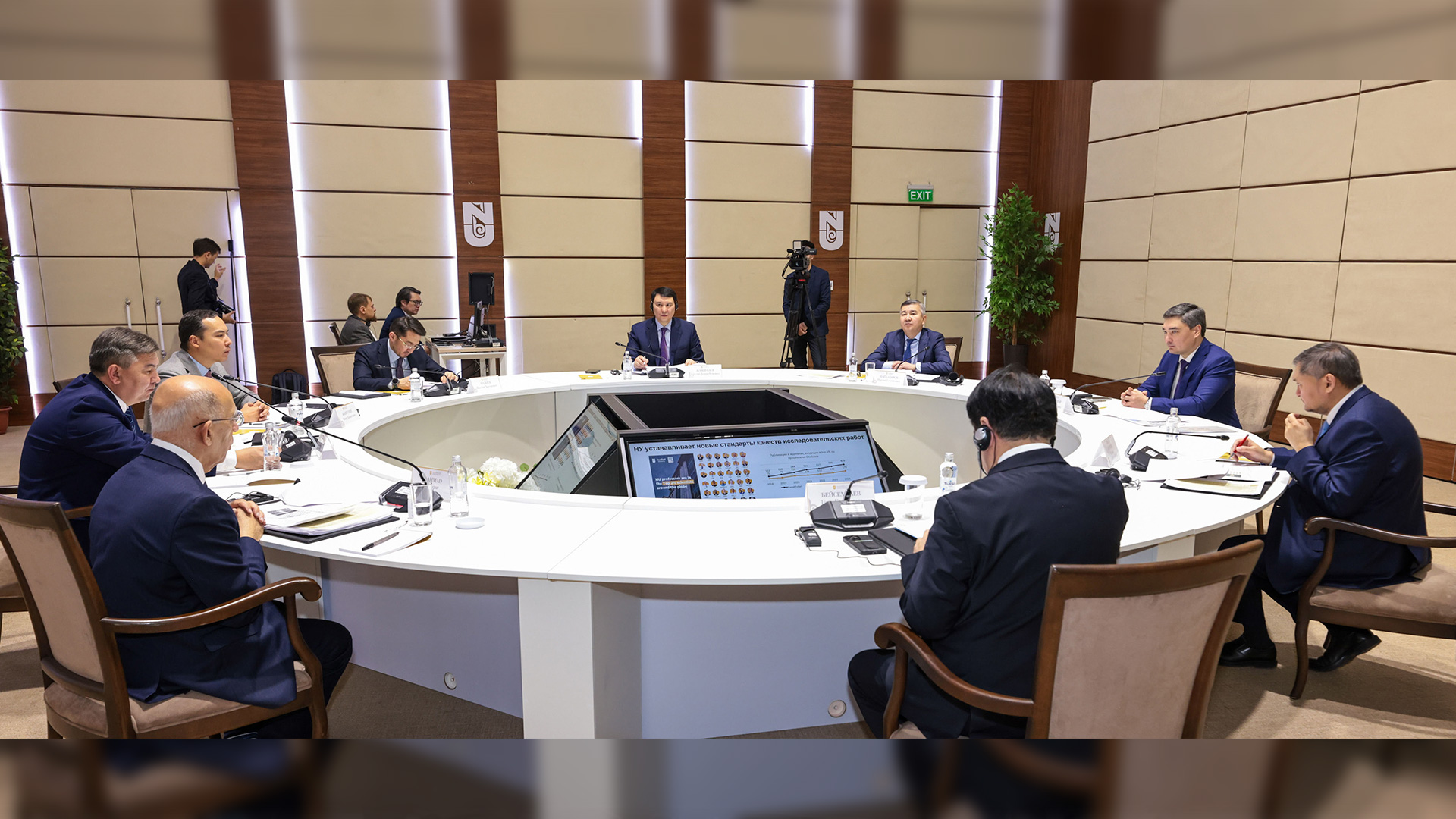ASTANA – Kazakh Prime Minister Olzhas Bektenov held a meeting of the Supreme Board of Trustees of Nazarbayev University (NU), Nazarbayev Intellectual Schools (NIS) and Nazarbayev Fund to discuss work results and outline development plans.

NU intends to achieve the goal of entering the top 300 of the Times Higher World University Rankings and the top 2 among CIS countries. Photo credit: Prime Minister’s press service.
The meeting outlined approaches to improve NU’s quality of education and efficiency to enter the top 300 of the Times Higher World University Rankings and the top 2 among CIS countries.
According to NU President Waqar Ahmad, the university is one of the leading institutions in higher education, research, and innovation in the Central Asian region. Since 2011, nearly 360 scientific projects, more than 9,000 publications and at least 500 start-ups have been presented.
During the visit to the technology park at NU University, Bektenov learned about the advanced scientific developments in healthcare and the development of AI, mining and metallurgical industry, which are implemented by researchers of the university and aimed at commercialization of scientific solutions, reported the Prime Minister’s press service on Dec. 2.
Today, 32 Kazakh enterprises operate on the technopark’s 3,000-square-meter space, which includes an experimental workshop, a digital prototype laboratory, and special economic zone regime chances.
Each project is evaluated on the Technology Readiness Levels (TRL) scale, with scores ranging from 0 to 9 based on its technological readiness levels.
Some initiatives received the highest ranking, including the ed-tech startup CodiPlay, the Smartview Innovation tool for the optimization of analysis and management processes in mining and metallurgical complex, and the IHT Central Asia medical device manufacturing company.
Researchers presented initiatives such as the manufacture of exoskeletons for rehabilitating persons with impaired locomotor functions, developing a method for long-term transport of a donor organ in the preclinical stage, and a novel anticancer medicine. The innovations are in various phases of clinical study.
Bektenov also learned about ten new developments with commercial potential in the fields of information technology, medicine, robotics, artificial intelligence, energy and education.
Bektenov emphasized that the government supports initiatives to develop the economy and improve the population’s quality of life. The university management and leaders of the relevant governmental authorities were instructed to combine science and production, develop sales, and target exports.
“Scientific breakthroughs have a strong chance of becoming successful economic ventures. It is critical for us to align innovation policy with the country’s scientific and technical goals. We must not only establish ideal conditions for research and development initiatives, but also make them more commercially viable. This will improve Kazakhstan’s standing in the world arena and provide a boost to the growth of high-tech enterprises,” said Bektenov.
